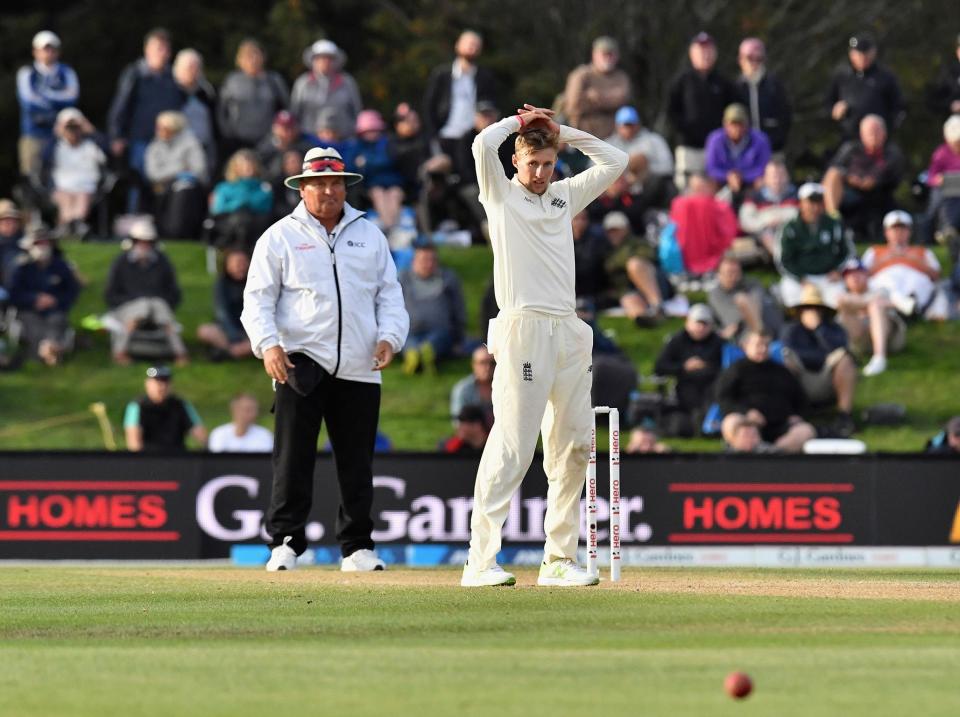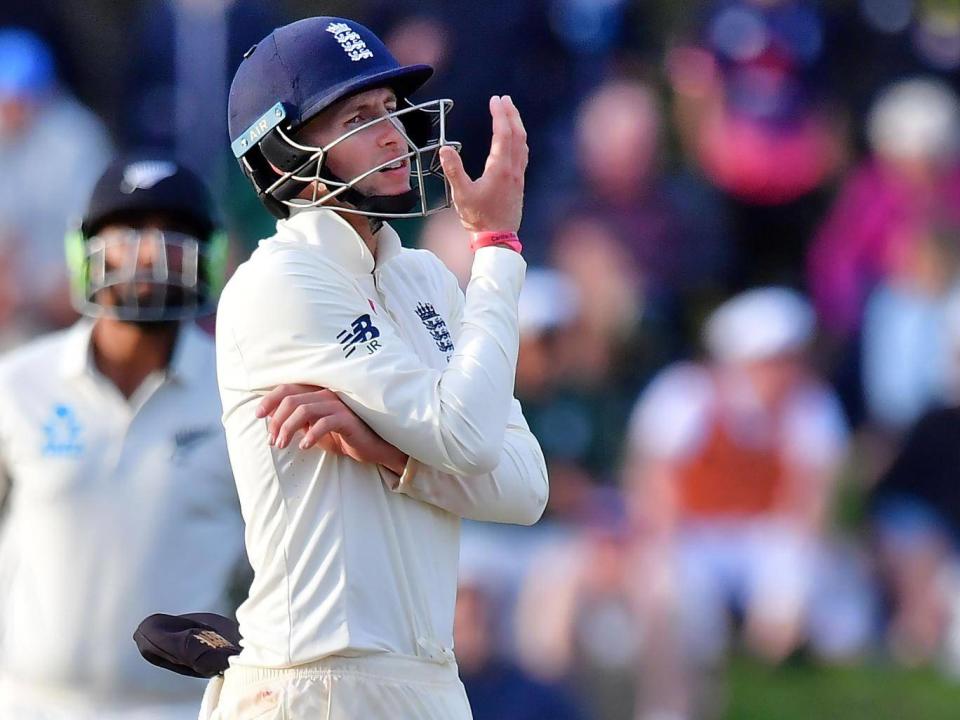Joe Root must grasp England’s fresh summer of Test cricket and become more than just a captain

Lord’s on the eve of an English Test summer, with the close-cropped grass dancing and sparkling in golden sunshine, and the giant beer kegs being winched in on whirring forklift trucks, feels like a good place for a fresh start. The mind feels clean. The body feels primed and sharp. Winter’s last finger has finally loosened its frosty grip. And for these few blessed hours, all is possibility once more.
Just under a year ago, this was the tableau into which Joe Root stepped: a newly minted England Test captain marking his coming-of-age with a century for the ages. And as he strode from the Lord’s turf, 190 runs against the South Africans to his name, a smile that could melt glaciers, a bat that could cut steel, it really seemed like Root’s time had come at last: as if one of England’s most gifted modern batsmen was ready to take the next step, and that if we were lucky, he would take the rest of us along for the ride.
Instead, Thursday’s first Test against Pakistan offers a welcome opportunity to wipe clean the slate, after a winter in which Root’s own deficiencies somehow encapsulated those of his team. It is now 16 innings since his last Test century, and in those promising loose ends, those fits and starts, lie an analogue for England’s wider malaise. For all its intrinsic qualities, this is a team still short of an essence, a defining vision, a personality to match its unquestionable character. A team, in short, crying out for a leader. All it has right now is a captain.
Of course, there has been no shortage of leadership in English cricket of late. Indeed, you could even argue that between chairman Colin Graves, chief executive Tom Harrison, director of England cricket Andrew Strauss, head coach Trevor Bayliss and new national selector Ed Smith, English cricket has more bosses than the Yakuza.
And perhaps this has been part of the problem: in amongst the palimpsest of competing voices, the most important of all has been drowned out. How should this team play? What is the broader purpose of this side? What values should Joe Root’s England embody? One year into the job, we still don’t really know. At this time of spectacular turbulence for the domestic and global game, English cricket needs a visionary. All it has right now is a captain.
Not a bad captain, either, by all accounts. Nobody could accuse Root of a lack of effort or thoroughness in his attempts to break England’s stultifyingly predictable cycle of home triumph and away disaster. Like his predecessor Alastair Cook he is a genuinely nice man, and over the last year has continued Cook’s work in building a harmonious dressing room in which new faces have immediately felt welcome.
And even the finest leaders are at the eternal mercy of the talent at their disposal. The genetic offspring of Mike Brearley and Ernest Shackleton probably wouldn’t have conjured up an Ashes triumph over the winter. The sudden loss of his friend and deputy Ben Stokes hurt him badly. Root can’t simply conjure up a match-winning spinner or a 90mph left-armer out of the dust from his boots.

But for a captain who on assuming the job announced his intention to make England harder to beat – one that put him somewhat at odds with both Bayliss and Harrison, who advocated a more aggressive, entertaining form of cricket – Root has to be judged on results, and not just on a team but on an individual level. Whether by alchemy or exemplar or inspiration, the best captains – think Brendon McCullum, Misbah-ul-Haq, Steve Waugh, even Virat Kohli – elevate the level of the players around them. There has been no indication – yet – that Root is remotely capable of doing this.
And so what we have seen to date is a sort of Sunday-evening-salad of a team, cobbled together from odds and ends – a bit of positive intent here, some shavings of resilient character there, a generous splash of good areas – without any real thought for what the whole might taste like. A more nimble-footed captain might have rethought the bouncer barrage to New Zealand’s lower order long before they batted England out of the series. A more assertive captain might have persuaded James Anderson and Stuart Broad to pitch the new ball further up, instead of bowling dry back-of-a-length.
A more confident captain might have done a better job of reaching out to the cricketing public. Instead, for a clearly intelligent man, Root has been a largely taciturn communicator, cautious to a fault, refraining from expressing anything that might accidentally be misconstrued as an opinion. On the rare occasions he does take to social media, it is invariably – whether plugging protein powder, sportswear, beds, health insurance, aftershave, a luxury hotel chain or his own cricket coaching camps – an attempt to separate people from their money. At a time when English cricket is trying to connect with its public, it needs an ambassador. All it has right now is a captain.
There is, perhaps, a basic vulnerability there, and opposition teams sense it. They pick up on his nerves and prey on them. Unlike with the great batsmen, they know that when Root reaches 50, paradoxically he is the one under pressure. They know that he doesn’t really want to bat at No3, even if that’s not actually true. They know he is a young captain, learning on the job, battling a sceptical public, an inquisitive media and the imminent retirement of three legends all at once. They know he is the only permanent England Test captain this century to have lost more matches than he has won.
Of course, there are two words missing from all that. Until now. A return to headquarters, a new season and a fresh page, may well be just what Root needs to inject some life into his Test career. To start turning two figures into three. To use his position and his platform to speak. To remind us all of the astonishingly assured, lavishly gifted, relentlessly exuberant young man who first graced the England team half a decade ago. The return of Jos Buttler tantalises. The arrival of Dom Bess excites. All is possibility once more. It’s the first day of the Test summer; the perfect time for Root to rediscover his golden glow.

 Yahoo Sport
Yahoo Sport 





































